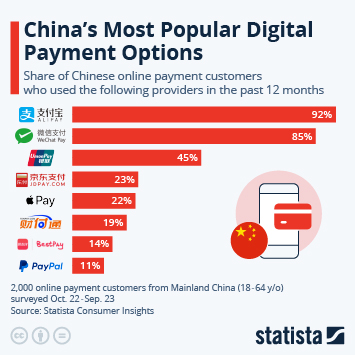Consumer complaints about digital wallets and mobile payment apps have been surging as more and more Americans ditch cash, according to a recent report from the U.S. Public Interest Research Group. The Consumer Financial Protection Bureau (CFPB) received 9,277 complaints related to "mobile or digital wallet" between April 2017 and April 2021. More than 1,000 complaints were received in the first year with over 5,200 recorded in the year preceding April 2021. There were 970 digital wallet complaints in April of this year alone, nearly double the previous complaint peak in July 2020.
The complaints analyzed in the report centered on either companies' digital wallet products or third-party digital wallets accessing bank accounts. The vast majority of complaints were aimed at just a handful of platforms and two-thirds of them were focused on just three companies - Paypal (which owns Venmo), Square (the owner of Cash App) and Coinbase. Unsurprisingly given its wide user base, Paypal had the most digital wallet complaints out of all companies with 4,431 recorded between April 2017 and April 2021. The bulk of them were related to managing, opening or closing a mobile wallet account.
Square, founded by Twitter CEO Jack Dorsey, came second with just over 1,200 complaints with unauthorized transactions the top issue. Coinbase comes third and it is noteworthy as a digital wallet service for buying and selling cryptocurrencies. It received 755 complaints related to digital wallets with the most common one relating to opening, closing or managing a moblile wallet account. Coinbase received a further 2,182 complaints under the product category "virtual currency", the most of any company, according to the report.
The report's findings are cause for concern given that digital payment users in the U.S. do not have the same protection levels as credit and debit card users. Credit card users are afforded protection under the Truth in Lending Act and fair Credit Billing Act which affords them a $50 limit on losses. Debit card users are also protected by scams due to the Electronic Fund Transfer Act and it also provides a limited level of protection to digital wallet users. Despite that, they remain vulnerable to both phishing scams and human error (such as tranferring to the wrong account). User frustrations among digital wallet users are often exacerbated by poor customer service by providers, according to the report.


















